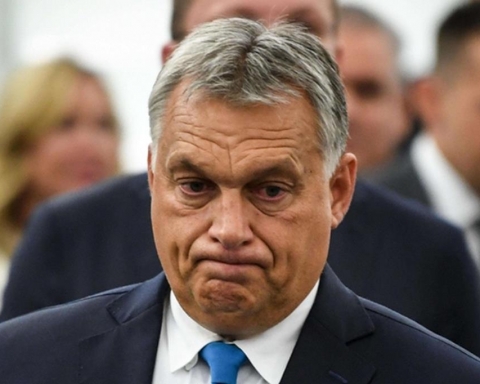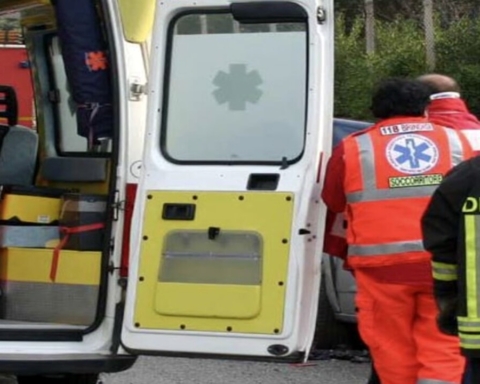The Commission has not renewed the contract with the Anglo-Swedish company, which expires at the end of June. A move expected after Brussels had initiated legal action for unreliability against the manufacturer of anti-Covid vaccines. Meanwhile, the president of the Campania region, Vincenzo De Luca, attacks: “there is a shortage of vaccines at the national level,” while Lazio has exhausted Pfizer’s bookings for May and Lombardy from midnight opens the administration for the over 50. On the strength of the contracts signed with the other representatives of Big Pharma who have proved to be more reliable, Europe is therefore preparing to stop supplying AstraZeneca at the end of the semester.
“We have not renewed the order after June. We will see what happens,” said Internal Trade Commissioner Thierry Breton. Breton was not critical of the vaccine, which he described as “very interesting and very good”, especially “because of the logistical conditions and temperatures” in which it can be stored. Now, however, he stressed, ‘we have started with Pfizer to work with the second phase and the second generation vaccines’.
In the first quarter of the year, AstraZeneca delivered a quarter of the agreed doses to the European Commission: 30 million instead of 120 million. The vaccine then had a difficult history, with the EMA freezing the number of doses for a few days, which was later lifted, while some countries suspended the vaccine for good. Brussels has therefore decided to bet on other producers deemed safer and able to meet the needs of the 27 in the second half of the year. In Italy too, however, the appeal of the Anglo-Swedish whey is fluctuating. More than one and a half million doses remain in the refrigerator, while 77% of those delivered have been administered. Pfizer stands at 94% and Moderna at 73%.
The Johnson & Johnson vaccine in Germany will be administered to patients over 60 years of age. This was reported by Dpa, referring to the decision of the health ministers of the Laender together with Minister Jens Spahn. Young people will be able to receive this product on a voluntary basis with medical advice. Like Astrazeneca, Jonhson & Johnson has also been liberalised.
Europa e Astrazeneca verso il divorzio: no al rinnovo contratto
La Commissione non ha rinnovato il contratto con l’azienda anglo-svedese in scadenza alla fine di giugno. Una mossa attesa dopo che Bruxelles aveva avviato un’azione legale per inaffidabilità contro il produttore di vaccini anti-Covid. Intanto, il presidente della Regione Campania, Vincenzo De Luca, attacca: “c’è una carenza di vaccini a livello nazionale”, mentre il Lazio ha esaurito le prenotazioni di Pfizer per maggio e la Lombardia da mezzanotte apre alle somministrazioni per gli over 50. Forte dei contratti siglati con gli altri rappresentanti di Big Pharma dimostratisi più affidabili, l’Europa si prepara dunque ad interrompere le forniture di AstraZeneca con la fine del semestre.
“Non abbiamo rinnovato l’ordine dopo giugno. Vedremo cosa succederà”, ha detto il commissario al Commercio interno, Thierry Breton. Breton non ha espresso critiche nei confronti del vaccino, che ha invece definito “molto interessante e molto buono”, soprattutto “per le condizioni logistiche e le temperature” cui può essere conservato. Ora, ha sottolineato tuttavia il commissario, “abbiamo iniziato con Pfizer a lavorare con la seconda fase e i vaccini di seconda generazione”.
Nel primo trimestre dell’anno AstraZeneca ha consegnato alla Commissione europea un quarto delle dosi pattuite: 30 milioni invece di 120 milioni. Il vaccino ha poi avuto una storia difficile col blocco delle somministrazioni deciso per alcuni giorni dall’Ema, in seguito rientrato, mentre alcuni Paesi lo hanno definitivamente sospeso. Bruxelles ha dunque deciso di scommettere su altri produttori ritenuti più sicuri ed in grado di soddisfare il fabbisogno dei 27 nella seconda parte dell’anno. Anche in Italia, peraltro, l’appeal del siero anglosvedese è quanto mai altalenante. Nei frigoriferi ne rimangono conservate oltre un milione e mezzo di dosi, mentre ne sono state somministrate il 77% di quelle consegnate. Pfizer si attesta invece al 94% e Moderna al 73%.
Il vaccino Johnson & Johnson in Germania sarà somministrato ai pazienti sopra i 60 anni. Lo scrive la Dpa, riferendo della decisione dei ministri della Salute dei Laender insieme al ministro Jens Spahn. I giovani potranno ricevere questo prodotto su base volontaria con la consulenza medica. Come Astrazeneca, anche Jonhson & Johnson è stato liberalizzato.








